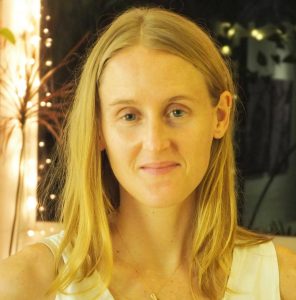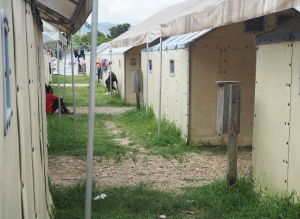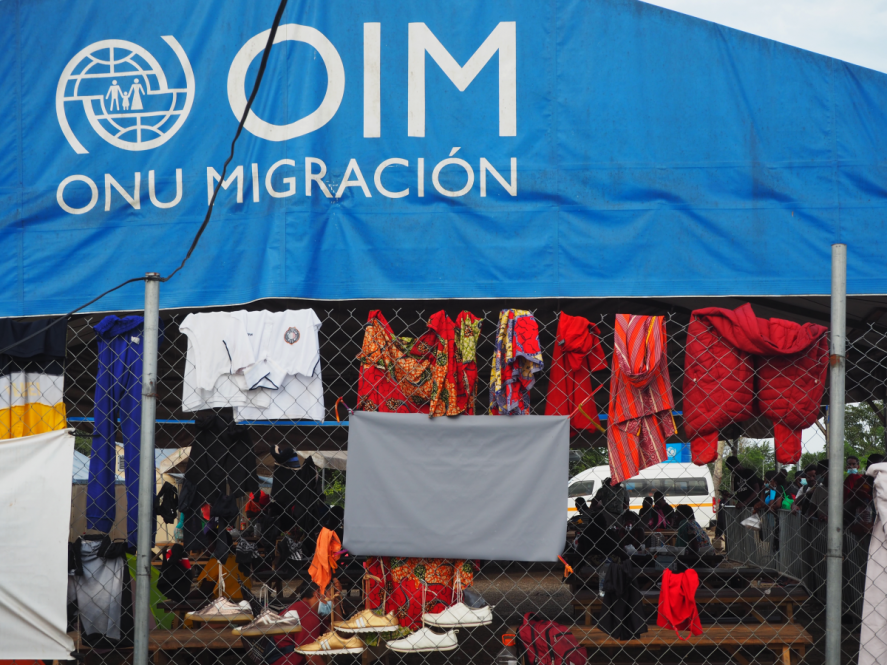The Institute for Collaboration on Health, Intervention, and Policy (InCHIP) at the University of Connecticut has announced Madeline Baird, a Ph.D. student in the Department of Anthropology in the College of Liberal Arts and Sciences (CLAS), is the recipient of its 2023 Jeffrey D. Fisher Health Behavior Change Research Fellowship.
Created in 2019 to commemorate InCHIP’s founding Director and Board of Trustees Professor Emeritus of Psychology Jeffrey D. Fisher’s career, each year the fellowship awards $2,000 to one outstanding UConn graduate student conducting their dissertation on health behavior.
“The Fisher Fellowship will provide instrumental support to advance my research to promote human rights protections and health equity for migrants in transit to the U.S.-Mexico border,” says Baird. “My research seeks to provide an understanding of the forces shaping human rights and immigration policies to document barriers to human rights protections and improve social service access. Examining human rights across border spaces presents an opportunity for the remaking of a human rights agenda to potentiate human flourishing and belonging.”

Baird’s dissertation aims to improve immigration and health policies to promote human rights protections and health equity for migrants traveling to the U.S.-Mexico border.
Baird is employing ethnographic methods; this intensive qualitative research method allows researchers to observe and interact with study participants to gain a holistic understanding of patterns in social interaction and meaning making within a specific context. Her project will evaluate how migrant experiences and U.S.-influenced immigration policies intersect to affect migrants’ experiences as they travel to the U.S.-Mexico border. She seeks to develop a framework to advocate for policies addressing the structural determinants that shape migrant experiences in Central America.
According to Baird’s Advisor, Associate Professor César Abadía-Barrero in the Department of Anthropology in CLAS and the Gladstein Family Human Rights Institute, the study would be among the first to show how U.S. migration policies shape migrant trajectories, humanitarian responses, and associated health outcomes.
Baird’s research is particularly important given the recent end of COVID-19 restrictions the U.S. implemented under Title 42 in 2020, which allowed the U.S. to turn away migrants seeking asylum. With the Title 42 restrictions lifted, the U.S. is employing new policies that would prevent asylum seekers from entering the U.S. unless they had applied for asylum through a Smartphone application or in a distinct country of transit prior to arrival to the U.S.-Mexico border.
From 2017 to 2022, U.S. Customs and Border Patrol reported a fivefold increase in the number of migrants encountered at the U.S.-Mexico border. This increase indicates a growing need for human rights protections and access to health care services for migrants during their transit.
“Across geopolitical contexts, inhabiting this space of illegality in transit presents extensive difficulty for migrants as their routes become longer, more dangerous and the border spaces become ‘black holes’ where human rights abuses occur systematically,” says Baird.
An example of this is the treacherous Darien Gap in Panama, which separates South and Central America. This migration path between Colombia and Panama is more than 60 miles of dense, neotropical rainforest where migrants experience extreme violence and associated health impacts.
Despite these risks, transit through the Darien Gap has increased rapidly in recent years as migrants flee the effects of climate change, political upheaval, and economic instability. Nearly 250,000 migrants crossed the Darien Gap compared to about 133,000 in 2021, according to the International Organization for Migration. This year, United Nations officials predict more than 400,000 migrants will attempt to cross the Darien Gap.
Baird began engaging with migration and health research during her time as a community outreach worker at a Texas-based health clinic primarily serving migrant, refugee, and asylee patients.
“Hours of afternoon home visits provided me the space to listen to stories of enduring years in refugee camps, escaping civil war or walking miles through Mexico crossing the U.S. southern border. Through my relationships with the patients I served, I gained an understanding of the linkage between migrant journeys and their embodied experiences impacting health,” said Baird.
Over the next eight years, Baird worked in health research and policy capacities in the U.S. and Latin America where she gained insight into some of the health challenges migrants must overcome during their journey to the U.S. southern border.
In 2021, Baird joined a multidisciplinary migration and health study in Darien, Panama. It was through this experience that she gained a comprehensive understanding of the human rights challenges that migrants transiting to the U.S.-Mexico border encounter. This motivated her to continue her dissertation research through multi-sited ethnography in Panama and Mexico.
“In transit northward from Panama, where migrants lose contact with family members, experience bodily injury, sexual violence, malnutrition, disease, and mental health impacts, they face similar forces of violence based on policies that limit movement from southern Mexico northward to the U.S. border,” said Baird.
Baird began preliminary data collection for her dissertation in Panama during the winter intersession and in the summer in 2022 using funds she received through UConn’s El Instituto and the Human Rights Institute’s Graduate Research Grant.

(contributed photo)
Her data included interviews with 42 migrants and 35 state and humanitarian officials at migrant reception centers that demonstrated the challenges to responding to health and social service needs for migrants traveling to the U.S.-Mexico border. The data also included photographs that were exhibited at the Gladstein Family Human Rights Institute in 2023.
As a 2023-24 Fulbright Scholar, Baird will investigate this new concern as part of her research at a comparative site in Chiapas, Mexico.
“This comparative perspective and the focus on health inequalities promises to be an important contribution for interdisciplinary scholarship on medical anthropology, human rights, and public health,” says Abadía-Barrero. “Maddy’s efforts to capture data on the kinds of harms that men and women experience in their journey will be fundamental to influence policy debates on migration, health care, and humanitarianism.”



